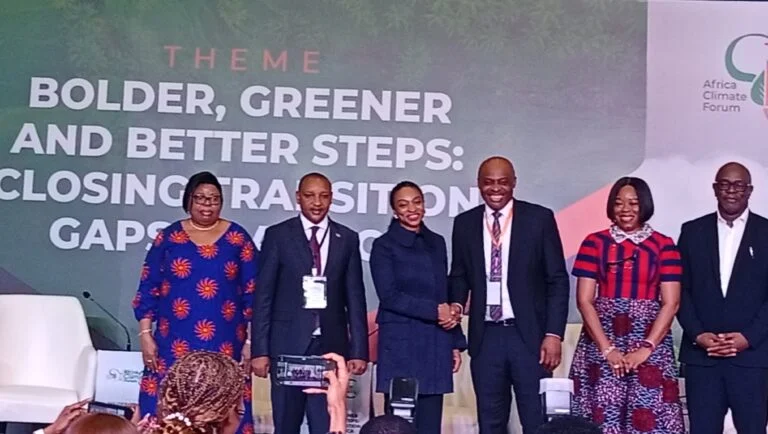By Abigael Joshua
The Nigerian Government says it is targeting a 47 per cent emission reduction by 2030.
Mr Festus Keyamo, Minister of Aviation and Aerospace Development, said this at the 2025 Edition of the Africa Climate Forum in Abuja.
The 2025 ACF has as theme “Bolder, Greener, and Better Steps: Closing Transition Gaps in Africa”.
Keyamo, represented by his Special Adviser on Foreign Direct Investments, Dr Obafemi Bajomo, said that the theme speaks directly to the urgency of Nigeria’s time.
“Our goal is clear; to meet and exceed our Nationally Determined Contributions (NDCs) under the Paris Agreement, targeting up to 47 per cent emission reduction by 2030 with international support.
“Through our Energy Transition Plan, Nigeria is charting a clear path to achieve net-zero emissions by 2060, expanding renewable energy access and reducing reliance on fossil fuels.
“We are scaling up climate-smart agriculture, advancing reforestation under the Great Green Wall Initiative, and investing in climate education and public awareness so that every citizen becomes a partner in progress.
“Africa stands at a crossroads. We are richly endowed. Rich in natural beauty, human capital, biodiversity, but also profoundly vulnerable to the disruptions of climate change.”
The minister assured that Nigeria was committed to sustainable transformation within the aviation sector.
Amb. Isaac Parashina, Kenyan High Commissioner and Ambassador to Nigeria, said that climate change was no longer merely an environmental issue.
“Africa does not lack vision. It lacks cohesion between aspiration, institutions and the resources necessary to sustain them.
“The question is no longer what Africa needs, but what Africa will decisively choose to do differently.
“Kenya now leads Africa in geothermal production, with over 90 per cent megawatts connected to the national grid and further projects underway.
“This success is grounded in policy continuity, investment certainty and a regulatory environment that encourages innovation,” Parashina said.
He revealed that Kenya’s campaign to plant 15 billion trees by 2023 sought not just environmental restoration but a cultural shift, a reimagining of civic duty where every tree planted is an investment in the future.
“Kenya believes that Africa’s climate transition must be collaborative. No country can address this challenge alone.
“Kenya and Nigeria for example, have enormous potential to cooperate in renewable energy, green technology, sustainable agriculture and carbon markets,” he added.
Similarly, Dr Muhammad Dingyard, Minister of Labour and Employment, said that the labour and employment sector played a crucial role to achieve Nigeria’s climate goals.
Dingyard represented by Dr James Obadiah from the ministry, said that critical transition towards a greener economy was vital for job creation in sustainable practices, renewable energy, and environmental conservation.
“Together, we can develop strategies that reflect our collective ambition to build a resilient and sustainable Africa. An Africa that thrives economically while preserving the environment for generations to come,” he said.
Earlier, Prof. George Nwangwu, Director-General, Global Centre for Law, Business and Economy, in an address of welcome, said that climate change was a borderless and relentless force.
Nwangwu said that climate change had thrust nations into complex web of negotiations, balancing rights, obligations, and commitments.
“ACF has emerged as a cornerstone of the global climate action movement. Since its inception in 2023, ACF has been a beacon of hope, innovation, and collaboration,” he said.
In a keynote address, Mrs Omotenioye Majekodunmi, Director-General National Council on Climate Change (NCCC), said that the council had deepen collaboration with international partners to enhance Nigeria’s climate data verification framework.
Majekodunmi, represented by Mr Michael Ivenso, Director, Energy Transportation and Infrastructure, NCCC, said that ACF had over the years shapened African climate condition. (NAN)(www.nannews.ng)
Edited by Deborah Coker












